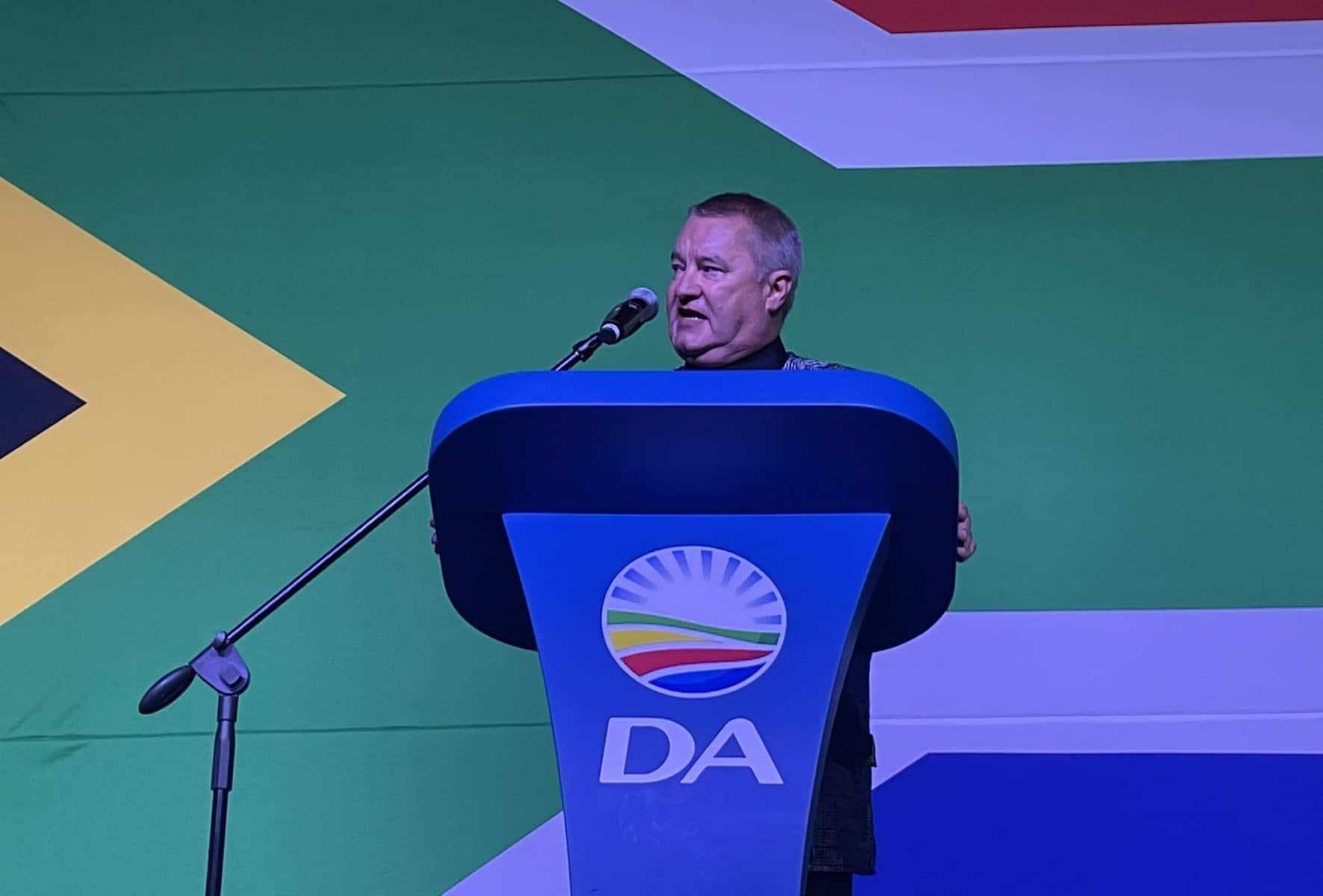South Africa
Principle before Politics for KZN MEC

Current DA provincial leader, Francois Rodgers.
© Twitter/X/DAWhen Francois Rodgers stepped into his role as KwaZulu-Natal’s new MEC for Finance, he was met with a mountain of challenges. From uncovering wasteful expenditure to tackling entrenched corruption, his resolve was clear, “to bring about change in a province long plagued by mismanagement.”
Rodgers, who transitioned from years on the opposition benches to holding a key government position, demonstrates humility and focus as we sit down for our interview. His approach to governance is refreshingly direct, prioritising transparency and fiscal discipline in an unprecedented coalition government, following the May 2024 elections.
A Shifting Political Landscape
The political shake-up in KwaZulu-Natal following the May 2024 elections saw the ANC lose its outright majority for the first time in decades. This led to the formation of a coalition government between the ANC, Democratic Alliance (DA), Inkatha Freedom Party (IFP), and National Freedom Party (NFP). Notably excluded was Zuma’s uMkhonto weSizwe Party (MK), that made significant inroads during the election.
Reflecting on the coalition dynamics, Rodgers acknowledges the complexities but emphasises the importance of maintaining integrity:
“When it comes to finance, it should be principle before politics. We’ve inherited a system where politics came before principle, and that’s something I’m determined to change. If I fail in this, I’ll fail the province.”
Fighting Corruption from Day One
Rodgers wasted no time addressing wasteful expenditure. On his first day in office, he discovered that he had two ministerial offices — one in Pietermaritzburg and another in Durban.
“I asked why there were two offices,” he recalls. “I was told it was something my predecessors wanted. I then checked the lease for the Durban office, which was up for renewal. I cancelled it immediately, saving over R1 million a year. That’s taxpayers’ money being put to better use.”
His actions exemplify his longstanding commitment to exposing corruption, a stance he has maintained throughout his political career he says.
“I’ve always been outspoken about corruption. Even in opposition, I made it my mission to shine a light on waste and wrongdoing. Being bold and brave often earns you respect across political lines, and that helps the cause.”
The Rise and Challenges of uMkhonto weSizwe Party
Discussing the MK’s dramatic rise and the implications for future elections, Rodgers says he sees no future threat. While acknowledging the party’s success in capitalising on voter disillusionment with the ANC, he remains sceptical about its long-term prospects.
“The MK’s rise came from the ANC’s failures and arrogance towards its voters. But I don’t see it maintaining its current trajectory. In by-elections where MK candidates have contested, their performance has been poor. That’s quite telling.”
He also notes the unpredictable nature of politics but believes the ANC will claw back some of its support. However, he maintains that the coalition government provides an opportunity to rebuild trust through good governance. Something which he believes will benefit the DA in the long run, if the government works.
From Opposition to Governance
For Rodgers, the transition from opposition to government has been eye-opening.
“When you’re in opposition, it’s easy to criticise and point fingers. But once you’re in government, you see the full extent of the waste and corruption first-hand. It’s diabolical how little respect there has been for public money.”
Despite the challenges, he views his position as an opportunity to make a tangible difference.
“Being in government allows me to expose and address corruption directly. It’s not easy in a coalition, as it sometimes means criticising your own partners, but the principle must always come first.”
A New Chapter for KwaZulu-Natal
As he navigates his role in a coalition government, his unwavering focus on transparency and fiscal responsibility offers hope for a province that has long struggled under mismanagement. His commitment to putting principle before politics sets a tone for a new chapter in KwaZulu-Natal’s governance - marked by accountability and the promise of real change. However, the upcoming local government elections in 2026 will be a true test for all political parties, especially those in governments of unity.
